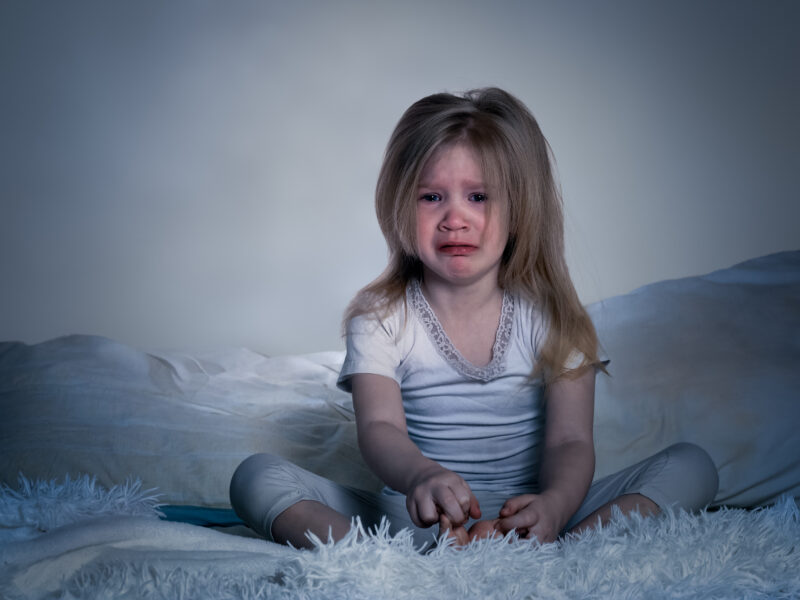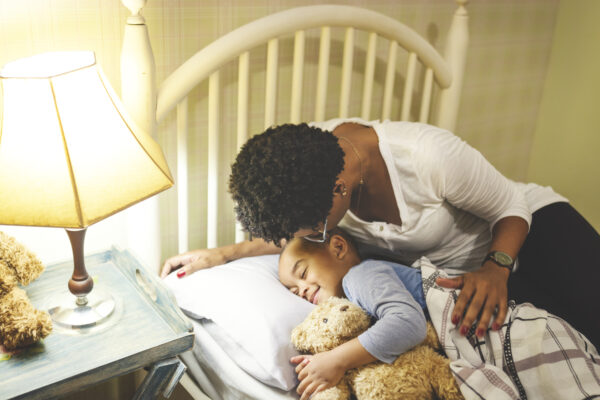 Getting kids to fall asleep at night is an age-old battle. Just one more drink? One more hug? Kids will try anything to stall and stay up a little later.
Getting kids to fall asleep at night is an age-old battle. Just one more drink? One more hug? Kids will try anything to stall and stay up a little later.
To help kids combat anxiety, hyperactivity and more easily settle in at night, some parents are turning to supplements that contain CBD, a chemical extracted from hemp, or marijuana. CBD is popping up in corner stores, bars and even medical settings in the form of vaping, gummies and drinks as hemp and hemp-derived products become legal in more and more states across the country.
“CBD is used in some adult medical situations for chronic pain, palliative and end-of-life care, chemotherapy-induced nausea and severe muscle spasms, but it is not approved for children,” said Swaroop Pinto, MD, a pediatric sleep medicine physician and director of Akron Children’s Mahoning Valley Sleep Lab. “There’s only 1 CBD product approved for children and that’s for the treatment of a rare, severe form of epilepsy.”
CBD, short for cannabidiol, can be a dangerous substance for children. CBD can cause sleepiness or even sedation, mood changes, decreased appetite, vomiting and diarrhea. It also has been associated with liver toxicity and seizures. Another concern with kids taking CBD is unknown interactions with other medications.
Sadly, across the nation — and right here at Akron Children’s — there has been a sharp increase in both school-age and high-school kids coming to the Emergency Room due to accidental cannabis poisoning.
CBD products are marketed for adults, and children that use these products may consume too large a dose for their body size. In addition, CBD products are not federally regulated, so products can contain varying amounts of CBD, some of which could be toxic levels for children, and other harmful ingredients, such as THC.
THC, or tetrahydrocannabinol, found in cannabis is the substance responsible for the effects on a person’s mental state, such as feeling “high” or experiencing euphoria. THC can be particularly risky for children and can cause severe changes in mental status and behavior, elevated heart rate, breathing problems and panic attacks.
“Because CBD products are not controlled by the FDA (U.S. Food and Drug Administration), we don’t know which or how much of these dangerous chemicals are in them,” warned Dr. Pinto. “What’s worse, there have been no studies done to tell us at what level do these chemicals cause poisoning in kids or if there are long-term effects on brain development.”

Sleep habits are a learned behavior, Dr. Pinto said. That’s why developing good sleep hygiene is vital to helping kids get a good night’s rest.
What can parents do instead to help kids struggling with insomnia?
It may come as a surprise, but sleeping habits are a learned behavior and developing good sleep hygiene is vital to helping kids get a good night’s rest. As a rule, preschoolers need about 10 to 13 hours, school-age kids 9 to 12 hours and teens 8 to 10 hours of sleep each night.
To help kids settle down and catch their much-needed Zzz’s every night, Dr. Pinto recommends:
- Turning off electronics at least 60 minutes before bedtime. The light emitted from TVs, smart phones, tablets and other devices stimulates the brain and can make it harder to fall asleep.
- Creating a calming sleep environment. Keep your child’s bedroom quiet, dark and at a comfortable temperature for sleeping.
- Establishing a consistent nighttime routine. Doing the same ritual each night before bed, such as going potty, brushing teeth and reading books, prepares kids’ bodies and minds for a restful night.
- Sticking to a regular bedtime — and waketime. Being consistent reinforces the body’s sleep-wake cycle.
- Encouraging physical activity. Regular exercise during the day relieves stress and anxiety, and promotes sleep in children.
If your child is still struggling with sleep after incorporating these best practices, Dr. Pinto recommends talking with a pediatrician before trying any over-the-counter supplements, even melatonin products.
“Sometimes melatonin or other supplements mask the problem, instead of fixing it,” she said. “There could be other underlying problems that need to be investigated to get to the root cause of the sleep issue.”
All kids experience sleepless nights from time to time. But if your child regularly has trouble sleeping and you have concerns about her sleep routine, talk to one of our pediatricians. If necessary, your provider can refer your child to a sleep specialist.










